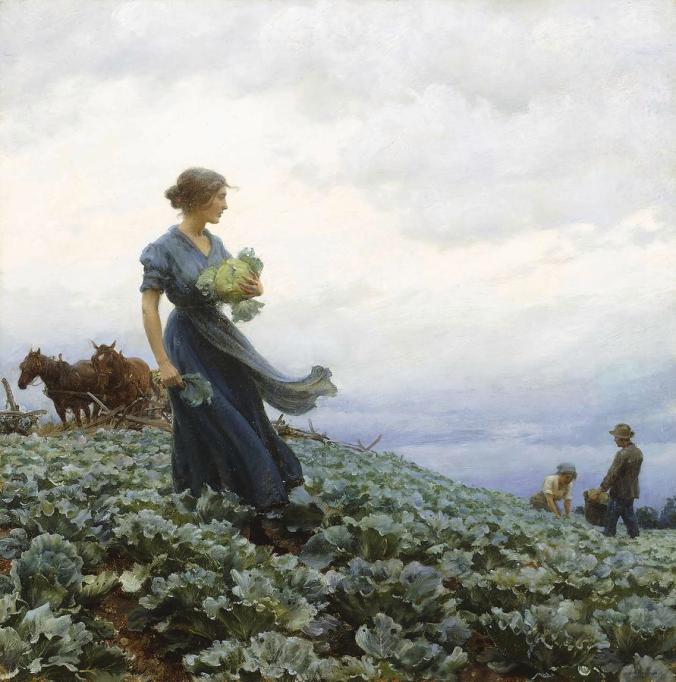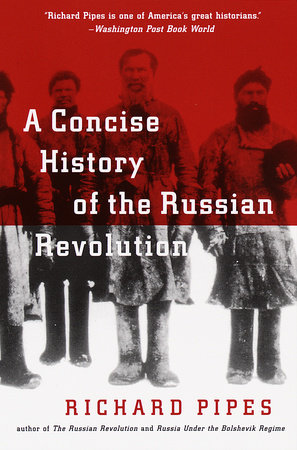Why use the foreign-sounding “intelligentsia” when the English language has the word “intellectuals”? The answer is that one needs different terms to designate different phenomena–in this case, to distinguish those who passively contemplate life from activists who are determined to reshape it. Marx succinctly stated the latter position when he wrote: “The philosophers have only interpreted the world in various ways; the point, however, is to change it.” The term “intelligentsia” describes intellectuals who want power in order to change the world. It is a word of Latin origin, which passed in the middle of the nineteenth century from German into Russian and from there, after the 1917 Revolution, into English.
Whether the conflicts and resentments that exist in every society are peacefully resolved or explode in revolution is largely determined by the presence or absence of democratic institutions capable of redressing grievances through legislation, and the presence or absence of an intelligentsia determined to fan the flames of popular discontent for the purpose of gaining power. For it is the radical intelligentsia that transforms specific, and therefore remediable, grievances into the uncompromising rejection of the status quo. Rebellions happen; revolutions are made. And they are made by bodies of professional “managers of the revolution,” namely the radical intelligentsia.
For an intelligentsia to emerge, two conditions must be met. One is a materialistic ideology that regards human beings not as unique creatures endowed with an immortal soul but as exclusively physical entities shaped by their environment. This ideology makes it possible to argue that a rational reordering of man’s environment can produce a new breed of perfectly virtuous creatures. This belief elevates members of the intelligentsia to the status of social engineers and justifies their political ambitions.
Second, the intelligentsia requires economic opportunities to secure independence: The dissolution of traditional social estates and the emergence of free professions (such as journalism and university teaching) along with an industrial economy in need of experts and an educated reading public, which, all taken together, emancipate intellectuals from subjection to the Establishment. These opportunities, accompanied by guarantees of free speech and association, enable the intelligentsia to secure a hold on public opinion, its principal means of political leverage.
Intellectuals first appeared in Europe as a distinct group in the sixteenth century in connection with the emergence of secular society and the progress of science. They were lay thinkers who approached traditional philosophical questions outside the framework of theology and the church, which in the postclassical world had enjoyed a monopoly on such speculation. Like the philosophers of ancient Greece and Rome, they saw their mission as one of teaching virtue and wisdom–educating men to curb their passions and to accept life with all its dark sides, including the inevitability of death.
Then a different kind of intellectual made his appearance. Impressed by the advances of science and the seemingly limitless possibilities inherent in the scientific method, he saw no reason he should not apply the insights into nature that science had made possible in order to master nature. It was a notion with very wide applications. The scientific (empirical) method posited that only that existed which could be observed and measured. It raised the question whether man could be said to possess an immortal soul or ideas planted in him at birth, as taught by religion and metaphysics, for neither this soul nor these ideas could be identified by scientific observation.
The full philosophical implications of this empirical approach were first drawn by John Locke in his seminal Essay Concerning Human Understanding (1690). In his political writings Locke laid down the foundations of the liberal constitutions of Great Britain and the United States. But his philosophical treatise inadvertently fed a very different, illiberal current of political thought. The Essay challenged the axiom of Western philosophy and theology that human beings were born with “innate ideas,” including knowledge of God and a sense of right and wrong. This notion had made for a conservative theory of politics because, by postulating that man comes into the world spiritually and intellectually formed, it also postulated that he was immutable. From this it followed that the principles of government were the same for all nations and ages. According to Locke, however, man is born a blank slate on which physical sensations and experiences write the messages that make him what he is. There is no such thing as free will: man can no more reject the ideas that the senses inscribe on his mind than a mirror can “refuse, alter, or obliterate the images or ideas which objects set before it” produce.
The implications of Locke’s theory of knowledge, ignored in his own country, were seized upon and developed in France by radical thinkers, notably Claude Helvétius. In De l’esprit (1758), Helvétius drew on Locke’s epistemology to argue that insofar as man is totally molded by his environment, a perfect environment will inevitably produce perfect human beings. The means toward this end are education and legislation. The task of the political and social order, therefore, is not to create optimal conditions in which mankind can realize its potential but rather to render mankind “virtuous.” Good government not only ensures “the greatest happiness of the greatest number” (a formula attributed to Helvétius) but literally refashions man. This unprecedented proposition constitutes the premise of both liberal and radical ideologies of modern times. It justifies the government’s far-reaching intervention in the lives of its citizens.
This idea holds an irresistible attraction for intellectuals because it elevates them from the position of passive observers of life into its shapers. Their superior knowledge of what is rational and virtuous permits them to aspire to the status of mankind’s “educators.” While ordinary people, in pursuit of living, acquire specific knowledge relevant to their particular occupation, intellectuals–and they alone–claim to know things “in general.” By creating “sciences” of human affairs–economic science, political science, sociology–they feel at liberty to dismiss as irrelevant practices and institutions created over millennia by trial and error. It is this philosophical revolution that has transformed some intellectuals into an intelligentsia, actively involved in politics. And, of course, involvement in politics makes them politicians, and, like others of the breed, prone to pursue their private interests in the guise of working for the common good. (21-23)

